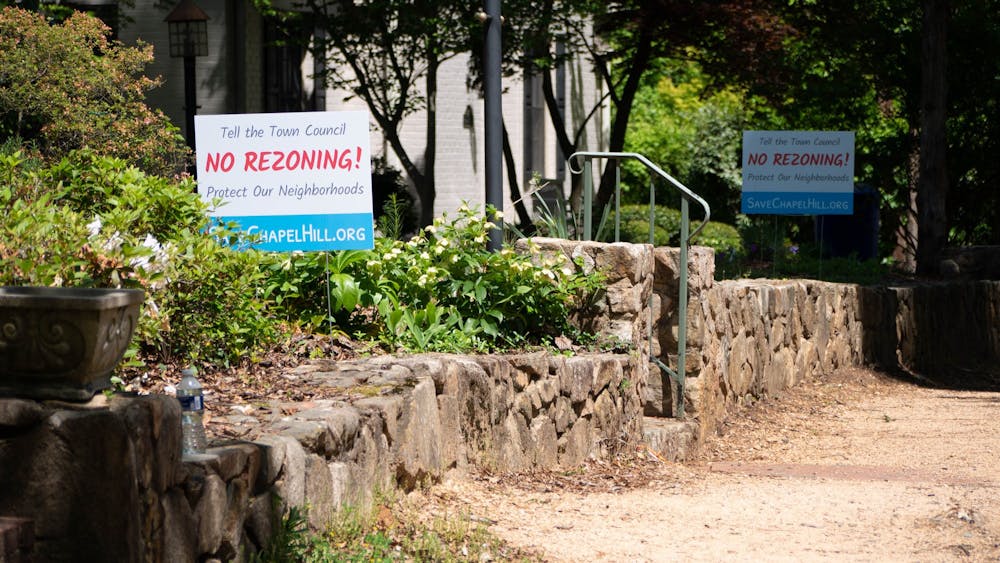The Chapel Hill Town Council passed a text amendment to its land use management ordinance on June 21 that allows more multi-family housing to be built in what were previously single-family zoned lots. The full ramifications of the decision are yet to be determined.
The change — which would permit two-family homes on all residential lots and three- and four-family homes in some higher-density areas — is aimed at creating more "missing middle housing" and promoting "gentle density."
Town Council member and now-mayoral candidate Adam Searing was one of three council members to vote against the ordinance change on Wednesday, partially because he said the ordinance would not apply to many neighborhoods in Chapel Hill, including his own.
State law, he said, does not allow the Town to override neighborhood pacts that ban non-single-family housing, which Searing said most neighborhoods built in Chapel Hill during the last 30 years have.
A March study from the Urban Institute found that loosening zoning restrictions in single-family residential areas allowed for slightly higher density over time, but may not lower costs or make housing more accessible for those earning below the national median income.
Searing cited this study in his remarks during the town council meeting on Wednesday and argued that the change wouldn't impact affordable housing.
Searing said the existing housing pipeline and what he projected as 25 percent growth of Chapel Hill in the next couple of years makes the zoning change unnecessary and too controversial to move forward with. He said the approval of South Creek, an 815-unit development near Southern Village, shows that the town has other ways to grow.
"We're approving these units," Searing said. "I'm not sure why this is even a question. This is one thing that drives me crazy. It's like, 'Oh, Chapel Hill's not growing at all.' Of course, it is."
Molly McConnell, a member of the Chapel Hill Alliance for a Livable Town, said she opposed the measure because she believes it will not create affordable or missing middle housing. She said new developments will cause problems for those living nearby.




